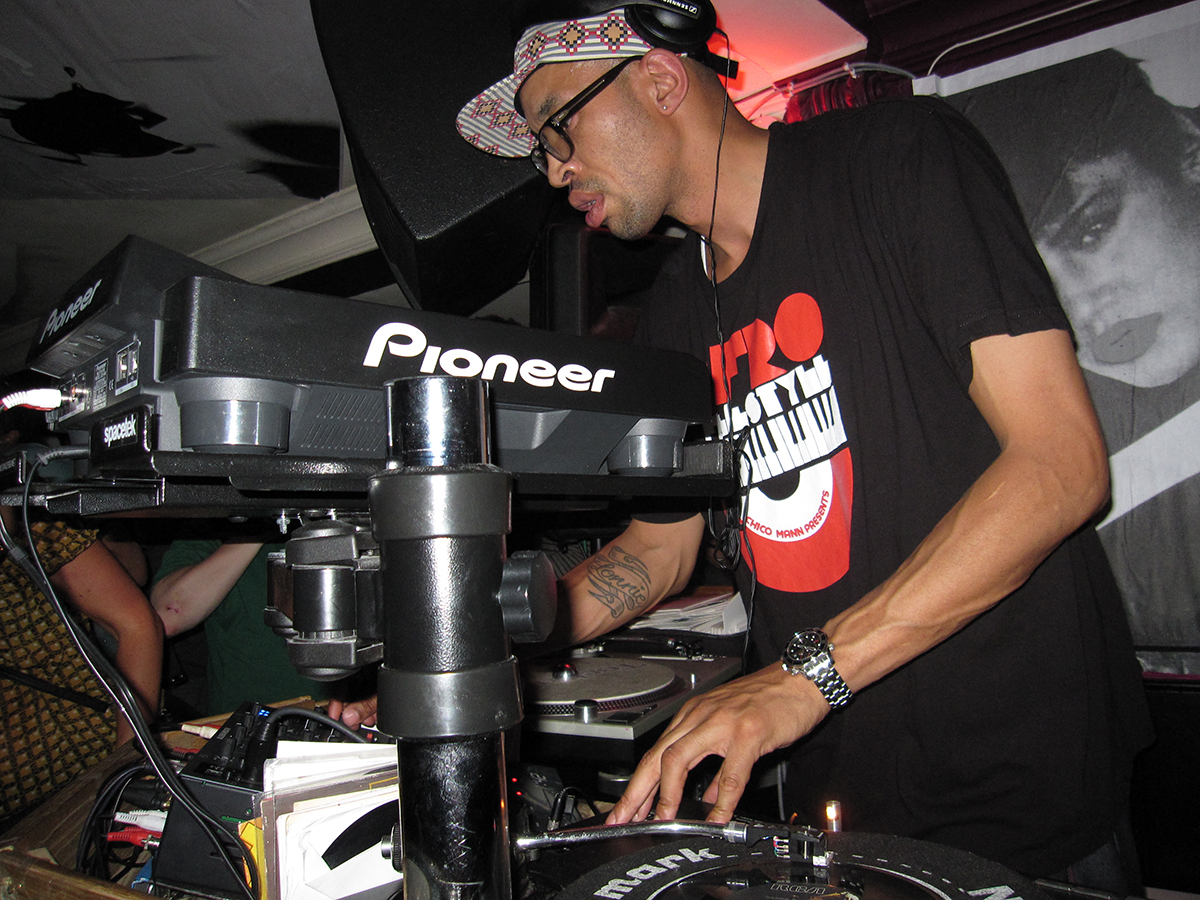DJ Rich Medina to teach summer class on hip-hop for CAU
By Melanie Lefkowitz

When Rich Medina graduated from Cornell in 1992, he did not imagine he’d return a quarter-century later as an instructor.
But this summer Medina – an advisory board member for the Cornell Hip Hop Collection – will teach the first-ever Cornell’s Adult University class on hip-hop. The class, he says, is a milestone for the university, for hip-hop as a cultural movement and for himself.
“I’m a lifelong hip-hop kid, and for me it’s incredible being an alum and having my lifestyle and my education meet in one place,” says Medina, a one-time semipro basketball player. He’d been a DJ since high school, and felt it was his true calling. At age 25, he left a corporate job to devote himself to DJing full time.
“Hip-hop has really driven my life, so to be able to come back to my alma mater and present it in a historical context is enormous for me, and I think it’s enormous for Cornell’s definitions of social studies and race relations. Courses like this are a big deal, so I’m honored to be a part of it.”
The course, “Hip Hop: Its History, Music and Culture,” will be held July 10-16 and is open to anyone of any age, not just Cornell alumni. Medina will be assisted by Katherine Reagan and Ben Ortiz, curators of the Cornell Hip Hop Collection in the library’s Division of Rare and Manuscript Collections. Medina says he sees the course as a way to reinforce the concept that hip-hop is not just a musical genre.
“The end game is to make people aware that hip-hop as a culture is more than just rap music. Rap music is one room in a giant house,” Medina said. “It’s an opportunity to really break that down and help people who may not necessarily understand the depths of the culture to understand it a little better, and to be able to use that information in a positive light.”
In recent years, hip-hop – already a multibillion-dollar global industry, as well as a major cultural movement – has been increasingly seen as a topic for academic study and research. Classes about hip-hop’s origins and impact are now taught at universities around the world, and institutions including Cornell, Harvard, the University of Southern California and the University of Arizona have created hip-hop institutes, programs or minors.
“It's an honor for us to have an artist of Rich’s caliber working with us to present this unique educational and cultural opportunity,” says Ortiz. “He is a natural teacher and has an amazing ability to talk about hip-hop culture and history in an engaging way.”
During the class, Medina plans to discuss the origins of hip-hop in the Bronx, how it evolved into the mainstream, and the people who helped build the culture through MCing, DJing, graffiti and dance as well as music. Taught in the library, students will also interact with artifacts in the Cornell Hip Hop Collection, the world’s largest hip-hop archive.
As a DJ, Medina met with quick success. In 2001 he began a nine-year run with his now-legendary party, Lil’ Ricky’s Rib Shack, at APT in New York City’s Meatpacking District, where performers including Prince, Puff Daddy, Lord Sear, Mos Def and Talib Kweli appeared regularly. From 2005-09, he partnered with Q-Tip, of A Tribe Called Quest, for a weekly party at Santos Party House in New York City.
In 2012, when he was attending his 20-year reunion at Cornell, Reagan and Ortiz connected with him, and Medina soon became the first alum to join the Hip Hop Collection’s advisory board.
His real-life experience in the hip-hop community will enrich the class, he says.
“As an athlete I always fared better playing for coaches who’d played the game, so I feel very lucky to come back to my alma mater and speak on a topic with the authority of someone who lived it,” Medina says.
Melanie Lefkowitz is a staff writer and editor at Cornell University Library.
Media Contact
Get Cornell news delivered right to your inbox.
Subscribe